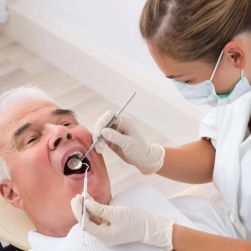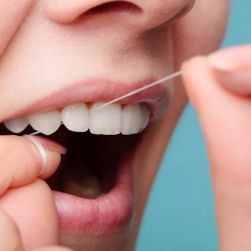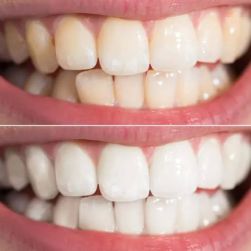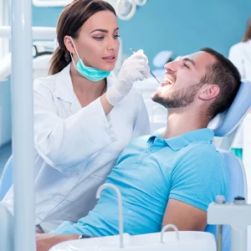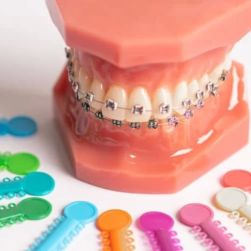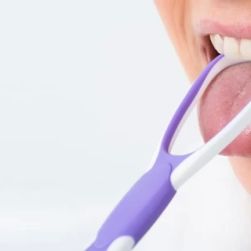Choosing the Right Toothbrush for Seniors: Tips and Recommendations
As we age, oral health becomes more important than ever. Many seniors face unique challenges when it comes to maintaining good dental hygiene, such as reduced dexterity, sensitive gums, or weakened teeth. One of the simplest and most effective ways to take care of your oral health is by choosing the right toothbrush. But with so many options out there, how do you know which one is best for you or your elderly loved one? In this article, I’ll walk you through the key factors to consider when selecting a toothbrush for seniors, helping you make an informed decision for optimal oral care.
1. The Importance of Oral Hygiene for Seniors
Good oral hygiene is crucial at every stage of life, but it becomes even more important as we get older. Seniors are more susceptible to dental issues such as gum disease, cavities, tooth sensitivity, and dry mouth. In fact, studies show that seniors are at a higher risk of oral health problems due to a decrease in saliva production, which can lead to dry mouth and a greater accumulation of plaque and bacteria.
Regular brushing with the right toothbrush is one of the most effective ways to combat these issues. But choosing the right toothbrush for seniors can be a challenge, especially if they have limited mobility, arthritis, or other physical conditions that affect their ability to brush effectively. Fortunately, with the right tools, seniors can still maintain excellent oral hygiene and prevent dental problems that can affect their overall health.
2. Manual vs. Electric: Which Is Better for Seniors?
When choosing a toothbrush for seniors, one of the first decisions to make is whether to go with a manual toothbrush or an electric toothbrush. Both have their advantages, but each is suited to different needs and preferences.
For seniors with limited dexterity or arthritis, an electric toothbrush might be the better choice. The automatic brushing motion makes it easier to clean teeth without having to apply much force. Many electric toothbrushes also come with built-in timers that ensure you brush for the recommended two minutes. This can be especially helpful for seniors who struggle to maintain a consistent brushing routine.
On the other hand, some seniors may find manual toothbrushes more comfortable to use, especially if they have arthritis or other conditions that affect their grip. A manual toothbrush allows for a more controlled brushing motion, and some seniors may prefer the simplicity and familiarity of this option.
3. Brush Head Size and Shape
Regardless of whether you choose a manual or electric toothbrush, the size and shape of the brush head are crucial. For seniors, a smaller brush head is generally preferred. A smaller head allows for more precise cleaning and easier access to hard-to-reach areas, such as the back molars. A compact brush head also reduces the risk of damaging sensitive gums, which can be a concern for many seniors.
When I helped my elderly parent choose a toothbrush, we found that a smaller head with soft bristles made brushing much easier and more comfortable. It’s important to choose a brush head that fits the size of the mouth and allows for efficient cleaning without causing discomfort.
4. Soft Bristles: Gentle on Gums and Teeth
As we age, our gums can become more sensitive and prone to irritation. Therefore, it's essential to choose a toothbrush with soft bristles. Hard bristles can cause gum recession and damage tooth enamel, especially for seniors who may already have weakened teeth or sensitive gums. Soft bristles are gentle on both the gums and the teeth, while still being effective at removing plaque and debris.
For seniors with gum disease or sensitive gums, a soft-bristled toothbrush is even more important. I’ve seen firsthand how using a soft toothbrush helped my loved ones avoid painful gum issues and maintain a comfortable brushing routine. Many toothbrush brands offer brushes with extra-soft bristles specifically designed for sensitive mouths, making them an ideal choice for seniors.
5. Handle Design and Grip
One of the most important features to consider when selecting a toothbrush for seniors is the handle. For seniors with arthritis, limited hand strength, or other conditions that affect their grip, it’s essential to choose a toothbrush with an ergonomic handle that’s easy to hold and maneuver.
Handles with a soft, non-slip grip can provide extra comfort and stability while brushing. Look for toothbrushes that have a thick, textured handle that fits comfortably in the hand. Some toothbrushes even feature handles designed specifically for people with arthritis, with larger grips that require less force to hold. This simple feature can make a big difference in how easy it is for seniors to maintain an effective brushing routine.
6. Additional Features: Timers, Pressure Sensors, and More
Many modern electric toothbrushes come with additional features that can be particularly beneficial for seniors. For example, built-in timers ensure that the user brushes for the recommended two minutes. This is particularly useful for seniors who may lose track of time while brushing or struggle to keep up with a consistent routine.
Another feature to consider is the pressure sensor. Some electric toothbrushes are equipped with pressure sensors that alert the user if they’re brushing too hard. Brushing too aggressively can damage the gums and teeth, so this feature is a great way to promote gentle brushing.
For seniors with specific oral care needs, some electric toothbrushes come with different brushing modes, such as a “sensitive” mode for gentle cleaning or a “gum care” mode that focuses on improving gum health. These features provide extra customization, ensuring that seniors can tailor their brushing experience to their unique needs.
Conclusion: Finding the Right Toothbrush for Seniors
Choosing the best toothbrush for seniors ultimately comes down to comfort, ease of use, and the specific oral care needs of the individual. Whether you opt for a manual or electric toothbrush, it’s essential to select a brush with soft bristles, a small head, and an ergonomic handle that allows for easy control. Additionally, consider the added benefits of features like timers, pressure sensors, and brushing modes to further enhance the brushing experience.
By selecting the right toothbrush, seniors can maintain excellent oral hygiene and prevent dental issues that can impact their overall health. I’ve personally witnessed how the right toothbrush can improve a senior’s oral care routine, making it more comfortable, effective, and enjoyable. So take the time to explore the available options, and find the toothbrush that works best for you or your elderly loved one. After all, maintaining good oral health is an essential part of aging well.

